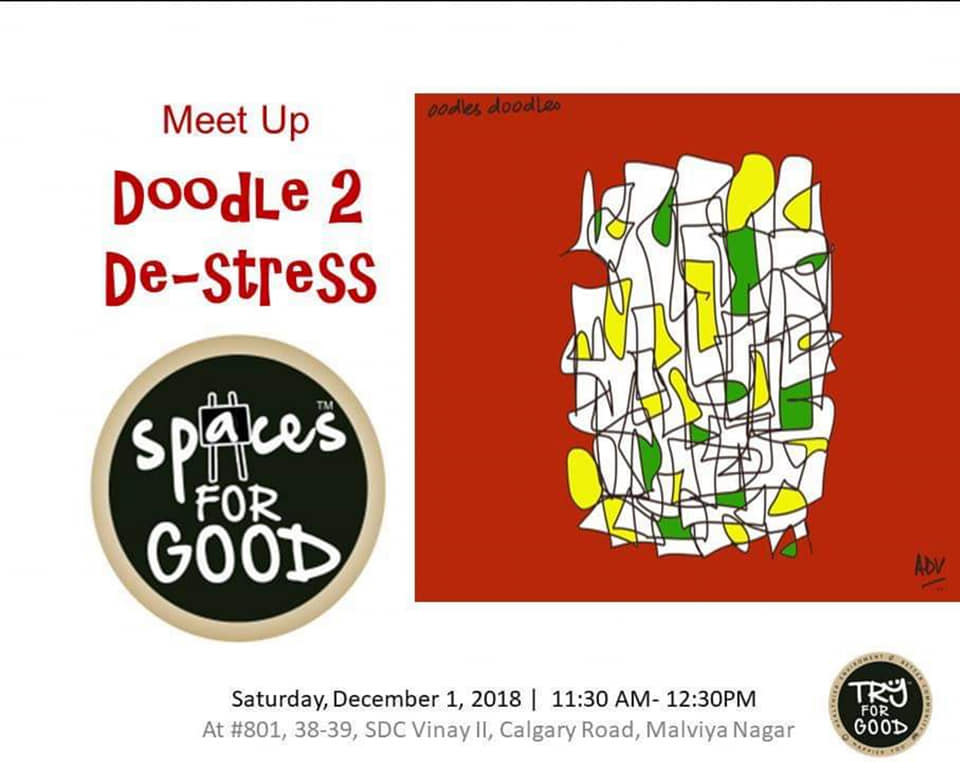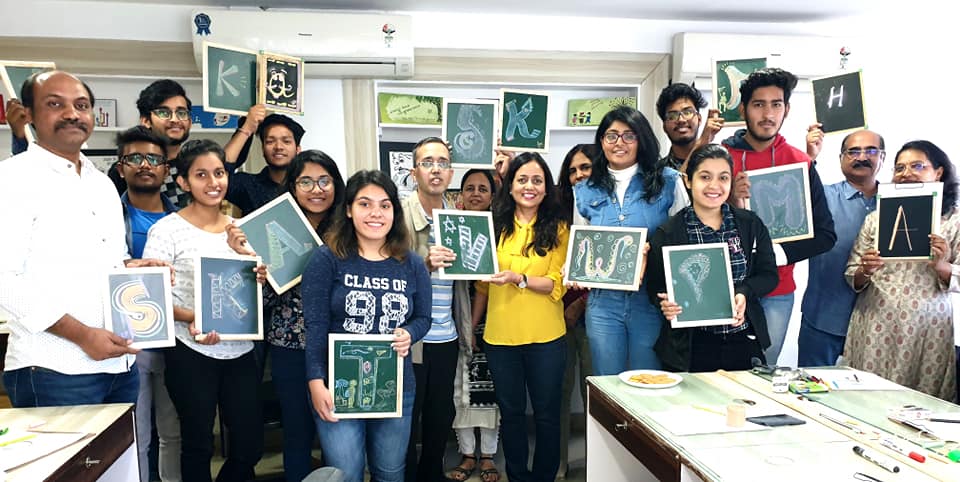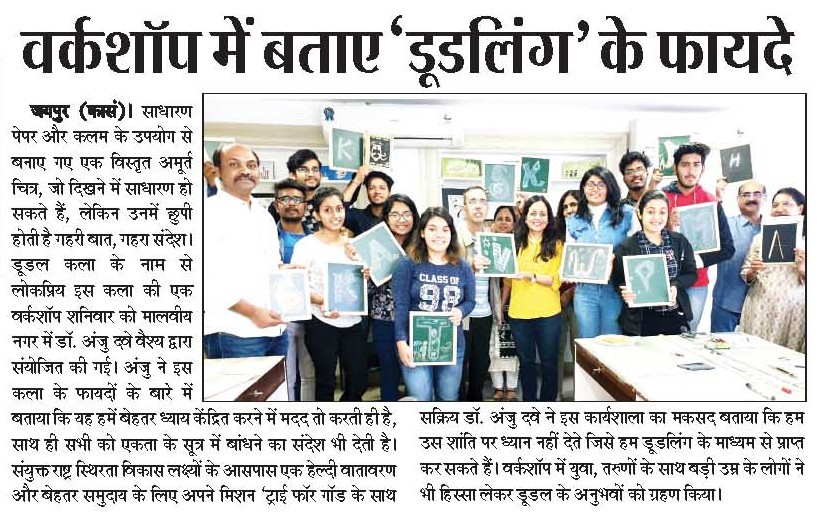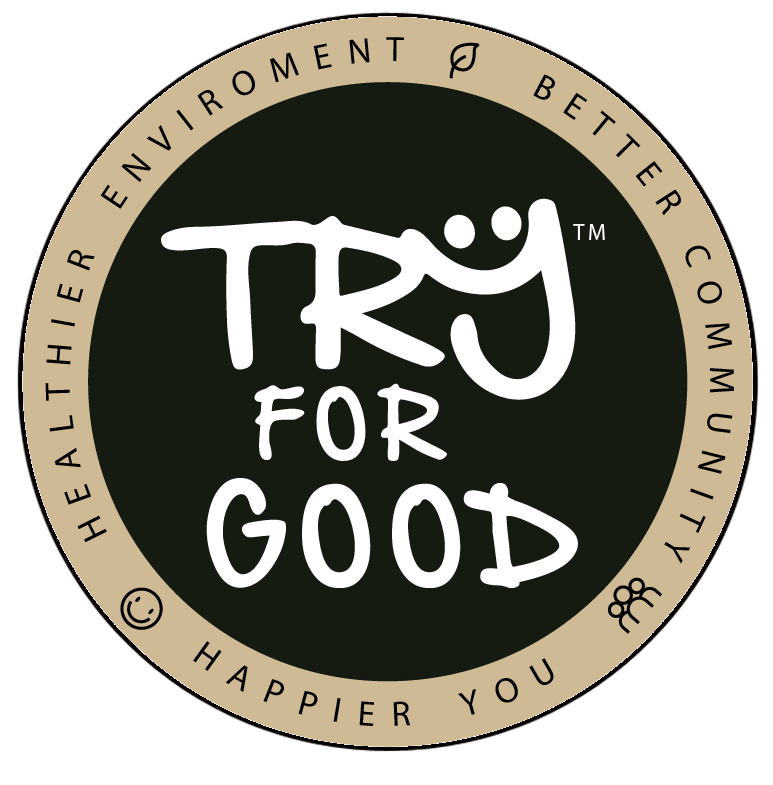
Creating Inclusive Spaces
Given a paper and a pen; most of us start doodling! With the mobiles replacing pens, our doodles are however, limiting down to just notepads in some lectures, or paper napkins at restaurants. Did you ever find doodling more than something trying to keep you awake or occupied? May be, we never pay heed to the calmness that we attain as we doodle. To experience the benefits of doodling, a workshop was organized. The idea was also to call on those who are often outpaced by the society (the old, lonely, disabled, caregivers etc.), for a recreation together. Doodling does not require any one to be proficient. It’s fun, it’s therapeutic and no one is judging anyone!
It is ironical that while the urban spaces are expanding with people and noise everywhere; the desolated, lonely and marooned hearts are multiplying! Either it is unsafe for these people to step out, or they feel left out unable to match the pace and trends of the changing world and their limitations. The medium of creating doodles, shapes and other synchronous fun and creative exercises puts all different people young or old, challenged or healthy; all at the same level. This creates inclusive experience in the community where the gap is bridged with better accommodation for each other. Besides, doodling actually helps us focus better; taking us away from all other distractions around. It also reduces stress, anxiety and other emotional issues taking you into a meditative state. Psychiatrists and art therapists advocate doodling also as therapeutic or even problem solving.
Dr. Anju Dave Vaish, who has been very active with her initiative “TRY for GOOD”, organized this workshop. Aligned around the UN sustainable development goals, her credo extends from actions for a healthier environment to create better community and a happier you. She has been pushing her ideas through awareness campaigns, presentations and workshops engaging people at various National and International levels. With her academic background and interest, she tries to bridge the missing link of science in the spaces of art and communication for sustainability. “SPACES for GOOD” is themed around that. The workshop was attended by people from diverse backgrounds and demography, who thoroughly enjoyed this concept. The concept was also appreciated by counselors, doctors, physiotherapists in the city.
#TRYforGood #SPACESforGOOD
#collaborativespaces #inclusivespaces
#artforrecreation #arttherapy



